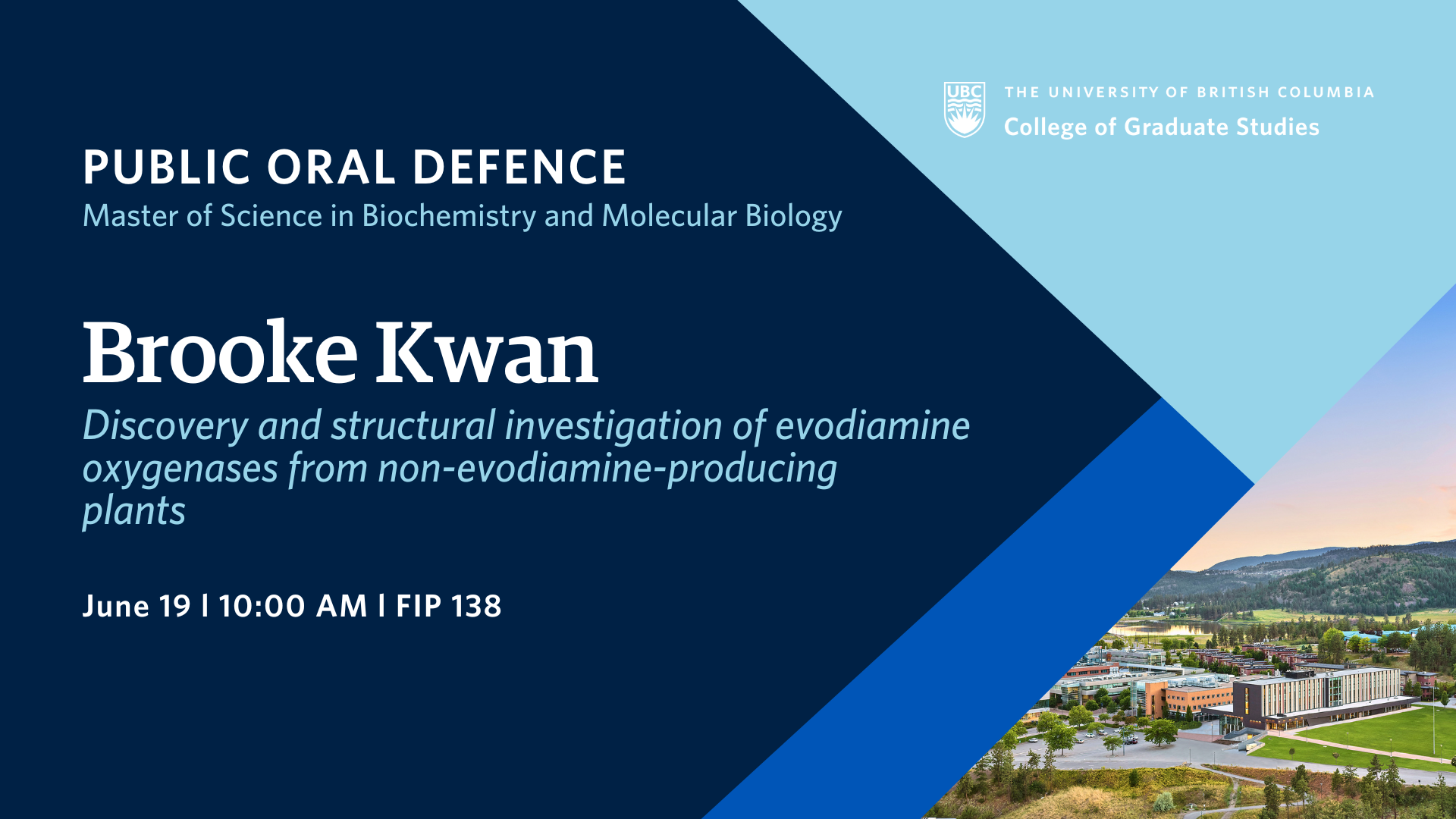
- This event has passed.
Thesis Defence: Discovery and structural investigation of evodiamine oxygenases from non-evodiamine-producing plants
June 19, 2024 at 10:00 am - 2:00 pm

Brooke Kwan, supervised by Dr. Thuy Dang, will defend their thesis titled “Discovery and structural investigation of evodiamine oxygenases from non-evodiamine-producing plants” in partial fulfillment of the requirements for the degree of Master of Science in Biochemistry and Molecular Biology.
An abstract for Brooke Kwan’s thesis is included below.
Defences are open to all members of the campus community as well as the general public. Registration is not required for in person defences.
ABSTRACT
Biocatalysts have become increasingly prevalent in pharmaceutical production and synthetic
chemistry. Among biocatalysts, alkaloid oxygenases’ ability to install reactive handles on
unactivated carbons in biologically active alkaloids make them desirable biocatalytic tools for
drug development and large-scale drug production. Generally, biocatalysts are identified by
mining enzymes from hosts that produce, or that are grown in an environment rich in, the
desired enzymatic substrate. However, hosts that neither produce nor are exposed to the
desired enzymatic substrate may represent an untapped gold mine of potential biocatalysts. To
identify putative alkaloid oxygenases, OrthoFinder was used to identify putative orthologs of
known alkaloid oxygenases acting on the alkaloids tabersonine and ibogamine. From among
these putative orthologs, three cytochrome P450s from Tabernaemontana elegans and
Camptotheca acuminata were found to oxygenate the quinzoline carboline scaffold evodiamine,
despite the fact that these plants are not known to produce evodiamine. These evodiamine
oxygenases produced several evodiamine derivatives oxygenated at either of their terminal
rings. The evodiamine oxygenase with the most diverse product profile was subjected to sitedirected
mutagenesis to probe the potential role of three active site residues, phenylalanine-
102, phenylalanine-113, and phenylalanine-201, in promoting the formation of multiple products.
Two mutants, F102A and F113A, as well as a double mutant F102A-F113A, were sufficient to
attenuate oxidative activity against evodiamine. The unexpected activity of the evodiamine
oxygenases against evodiamine suggests that plant hosts that neither produce nor are exposed
to the desired enzymatic substrate may nonetheless serve as a source of efficient biocatalysts.